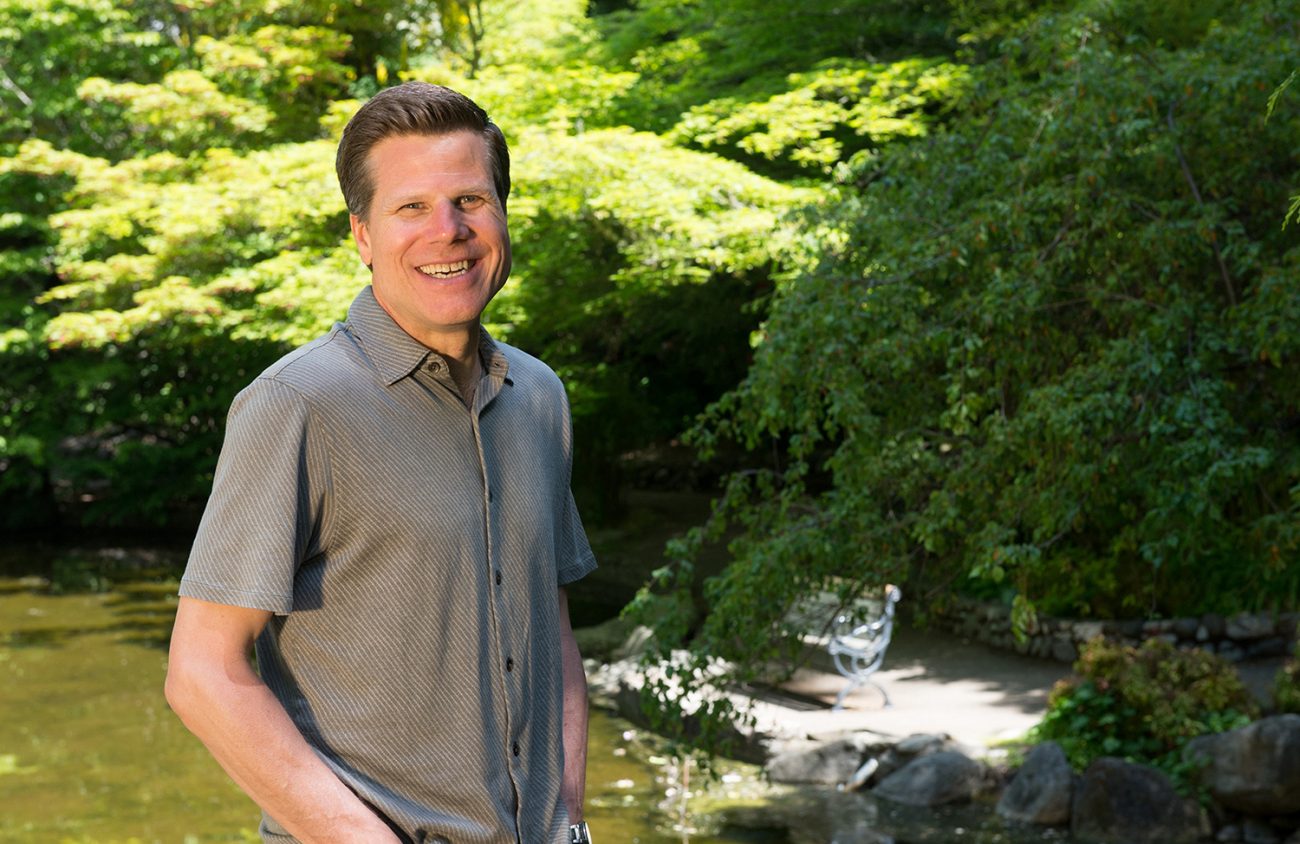In the theater world, timing is everything, as Bill Rauch certainly knows. The visionary who ran the Oregon Shakespeare Festival for a decade moved to New York City last year to become founding artistic director of the Ronald O. Perelman Performing Arts Center, a $275 million complex under construction next to Ground Zero that’s projected to open in spring 2023.
He, his husband, Christopher Liam Moore, and their two children arrived in the city in August. In March, when New York closed down, the family fled to Massachusetts to Moore’s childhood home. Rauch and family were still living there when Eugene Weekly called in late June to get an update on his life and work, but they headed back to their lower Manhattan apartment in early July.
Have you been able to keep working from Massachusetts?
Oh, yes. I’m in meetings for the Perelman pretty much 9 am to 5 or 6 [pm] every day. I’ve learned more about Zoom than I ever dreamed possible.
The Perelman will present much more than just theater, yes?
That’s correct. It’s music, dance, chamber opera and theater. So it’s all performing arts. That was both what attracted me to the job and terrified me. It would mean learning new disciplines to program.
What is your mission going to be with the Perelman?
It’s really to build connections across disciplines. It won’t surprise you, knowing about my 20 years at Cornerstone [Theatre Company, which Rauch and Moore founded in Los Angeles in 1986] and my 12 years at OSF that I’m deeply interested in the question of community and how we can really celebrate lots of different types of communities in our building and connect the dots between the people who live in New York City now and where they and their forebears came from in other parts of the world.
Is it much of a culture shock to be back in New York after life in Ashland?
We all miss Ashland, we all miss Oregon, we all miss OSF, for sure. We were just starting to really get settled when the world changed.
What do you think that change is going to mean for you at the Perelman, to Ashland and to theater in general?
I’ll answer your questions separately. We certainly assume that by 2023 we will — well, we hope there’ll be a vaccine. But you know, how audiences experience life and culture will have changed in ways that we can begin to guess but we won’t fully know.
In some ways you’re in a brilliant position at the Perelman because you have not opened yet and you have time to sort this out.
That’s right. And, you know, that’s going to mean everything from, are there ways that our building can be more responsive to the needs of a post-pandemic society, right on to thinking about our programming.
Like every non nonprofit, you know, we’re worried about the economics of a nonprofit organization, right? Everybody has to be, given all that’s happened.
I’m of course in active communication with a lot of my friends from OSF and with Nataki [Garrett, who succeeded Rauch as OSF artistic director]. I think OSF is incredibly blessed to have her as its leader right now, because she’s such a strong leader and she’s so visionary. And I think OSF is being very smart in terms of staying in communication with its constituency digitally. You know, OSF has been through an awful lot of challenges, and the pandemic is just the latest.
It’s been a hard stretch, but I’m very confident in OSF’s strength and resilience.
On the broader question of theater in general, do you see any glimmers of what changes might be in store?
Well, the confluence of the pandemic and the movement for racial justice going on in this country — I think that that together offers a really important reset moment for the performing arts in terms of prioritizing equity in a thoughtful way.
Digital work — not just how we capture live performance and share it, but also original-content digital work — will be increasingly important. I think digital artistic output will just be more and more something that live performing arts organizations need to traffick in. There’s a great potential for greater access, you know. For instance, with Ashland, for people who can’t travel to Ashland for whatever reason, there are going to be ways to connect to its work. And I think that will be true of the Perelman and of so many organizations.
Do you know of anyone writing good work about the pandemic?
I think there’s all sorts of interesting work. There’s a creator named Joshua William Gelb who’s created something called Theater in Quarantine, and he’s literally been doing video of theater works in a little tiny closet in his apartment in New York. He’s delightful. And his work is delightful!
And are you getting pestered by Ashland friends who would like you to hire them?
We are all in a severe holding pattern waiting to see what’s going to happen. Chris and I went to a wedding of some former members of the acting company a couple of years ago, and there’s a huge OSF community in New York, so many performers and others who have been part of the OSF family who live in New York. So I think that there’s going to be lots of relationships continuing in many, many different kinds of ways in the years ahead on the West coast and the East coast.
